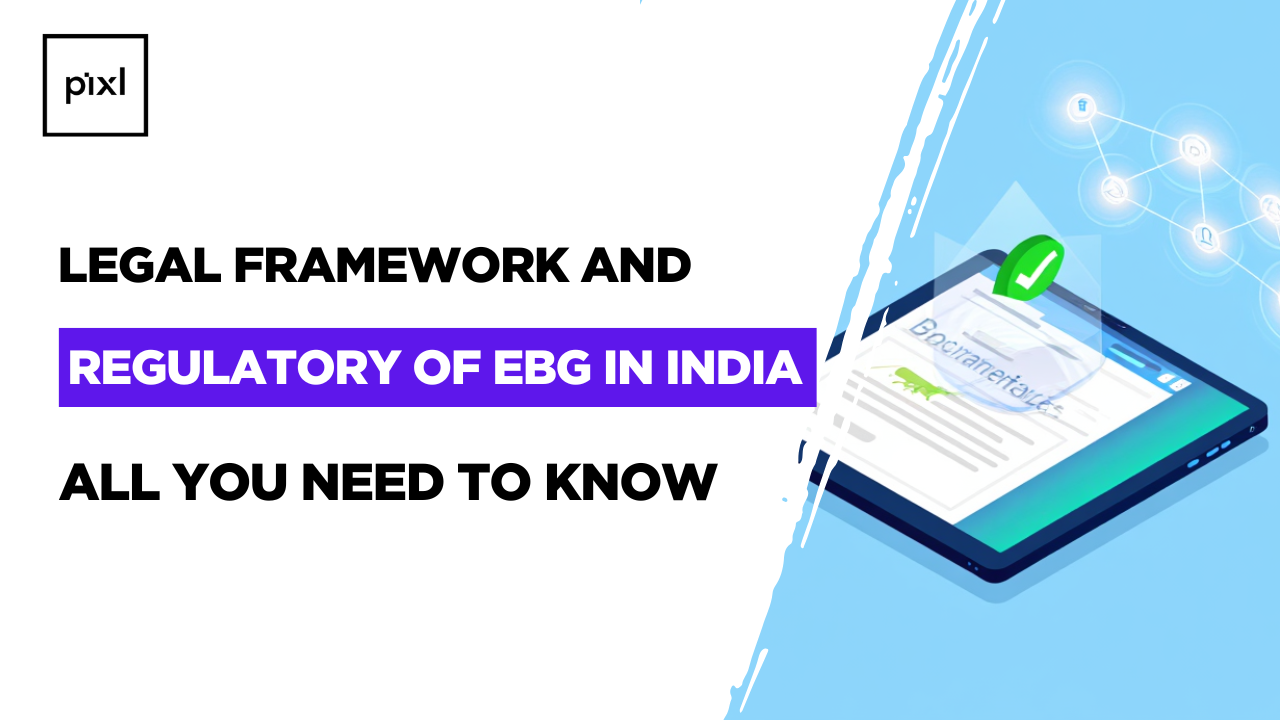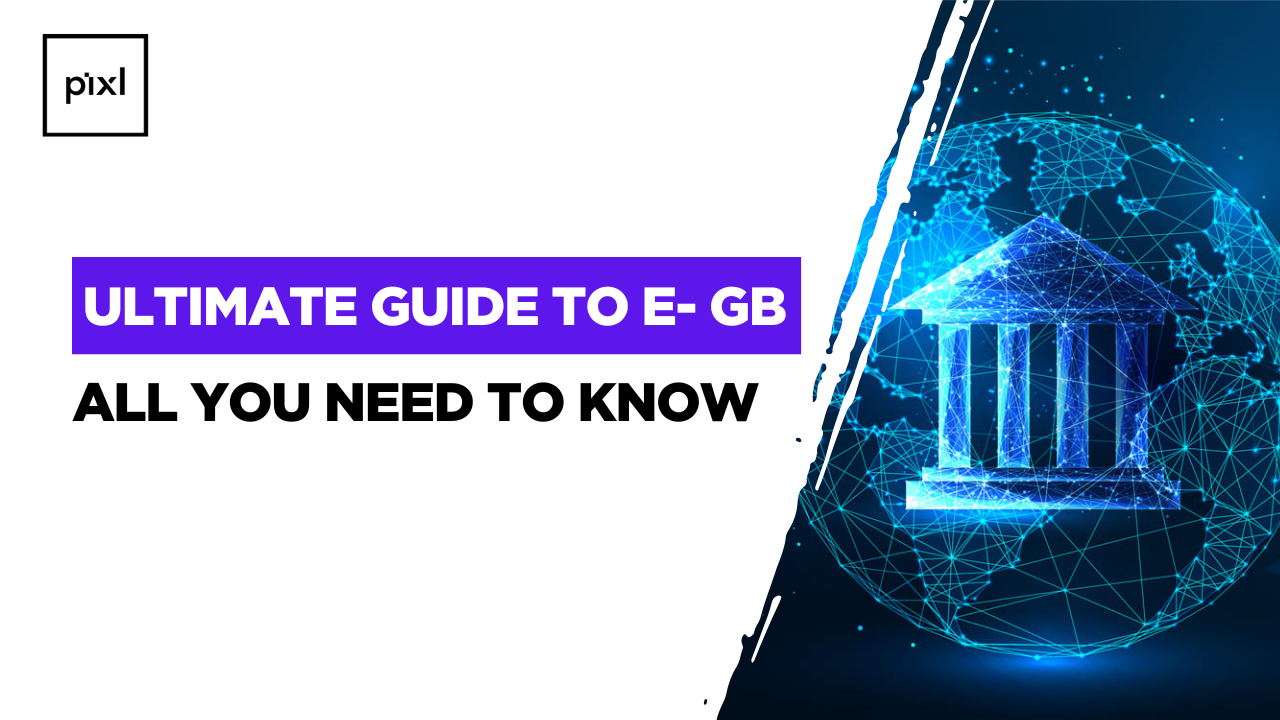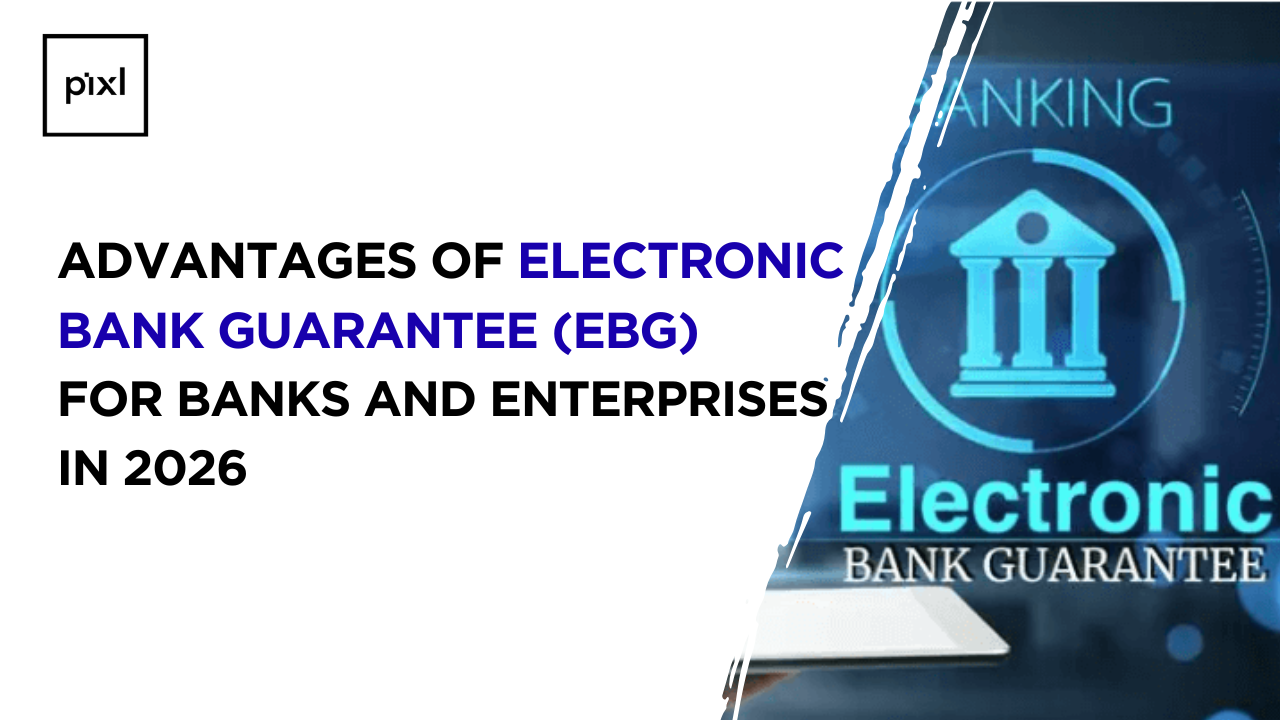Electronic Bank Guarantees (eBGs) have become the cornerstone of India’s digital banking transformation. As banks, enterprises, and fintechs shift from paper based guarantees to secure, API driven electronic systems, understanding the regulatory and legal framework of eBG in India is essential.
The move toward eBG is not just technological it is a compliance driven evolution guided by institutions like the Reserve Bank of India (RBI), the Indian Banks’ Association (IBA), and the National E-Governance Services Ltd. (NeSL). Together, these entities are shaping a secure, interoperable ecosystem that redefines how guarantees are issued, verified, and enforced.
Regulatory Foundations of eBG in India
The foundation of eBG lies in the combined efforts of RBI, IBA, and NeSL, each playing a distinct role in ensuring trust, transparency, and security.
- Reserve Bank of India (RBI): As the primary regulator, RBI provides the overarching framework for electronic guarantees, ensuring they comply with KYC, AML, and digital security standards. RBI’s 2022 digital directive encouraged banks to move toward paperless guarantee issuance and API-based verification.
- Indian Banks’ Association (IBA): IBA has developed detailed operational guidelines and standard formats for eBGs, ensuring uniformity across member banks.
- NeSL (National E-Governance Services Ltd.): Acting as the central repository and validation authority, NeSL provides the digital infrastructure for eBG issuance, e-stamping, digital signing, and lifecycle tracking.
These three pillars together guarantee authenticity, interoperability, and traceability core attributes of the eBG ecosystem.
Read Our Realated blog on : Ultimate guide to ebyg:All you need to know in 2026
Key Legal Provisions Governing eBG
The legal foundation of eBG is supported by multiple Indian laws that validate electronic contracts, digital signatures, and e-stamping.
Information Technology Act, 2000: Recognizes the legal validity of digital documents and signatures, making electronic guarantees legally enforceable.
Indian Contract Act, 1872: Provides the legal framework governing contracts, ensuring eBGs carry the same obligations and rights as paper-based guarantees.
Evidence Act, 1872 (Section 65B): Ensures electronic records are admissible in court, giving legal backing to digitally signed eBGs.
Indian Stamp Act (and respective State Acts): E-stamping mechanisms integrated within NeSL ensure every eBG is duly stamped and compliant.
These provisions together create a legally sound, auditable, and enforceable digital guarantee ecosystem in India.
The Role of NeSL in Enabling eBG Compliance
NeSL, as India’s first Information Utility (IU) under the Insolvency and Bankruptcy Code (IBC), ensures that all eBGs are stored, verified, and retrievable in real time.
Through secure API integrations, NeSL connects banks, corporates, and beneficiaries on a unified platform, providing:
- Immutable records for issuance, amendment, invocation, and closure
- Real-time verification of guarantee authenticity
- Automated audit trails to ensure regulatory readiness
- E-stamping and digital signature integration for legal compliance
This centralized validation significantly reduces the risk of fraud and disputes, making NeSL a trusted entity for the digitized guarantee lifecycle.
How eBG Aligns with RBI and IBA Directives?
RBI’s push for digitization underlines its goal of building a secure, paperless financial infrastructure. eBGs align perfectly with this vision by
- Eliminating manual paperwork and courier delays
- Enhancing operational transparency
- Ensuring KYC/AML compliance
- Enabling interoperable digital verification across all participating banks
IBA’s standardized eBG format ensures every bank follows uniform processes for issuing, signing, and maintaining digital guarantees. Together, these regulations make India’s eBG ecosystem one of the most secure and compliant globally.
Conclusion: Compliance Is the Core of Trust
As India accelerates toward a digital-first banking ecosystem, the eBG framework stands as a hallmark of secure, compliant, and efficient financial transformation. With robust backing from RBI, IBA, and NeSL, eBGs not only meet legal mandates but also empower banks and enterprises to operate confidently in a paperless environment.
Transform Your Guarantee Workflow with Pixl eBG
Experience a secure, compliant, and API-driven eBG solution with Pixl.ai. Our platform simplifies e-stamping, digital signing, and regulatory integration, helping banks and enterprises align with RBI and NeSL standards effortlessly.



